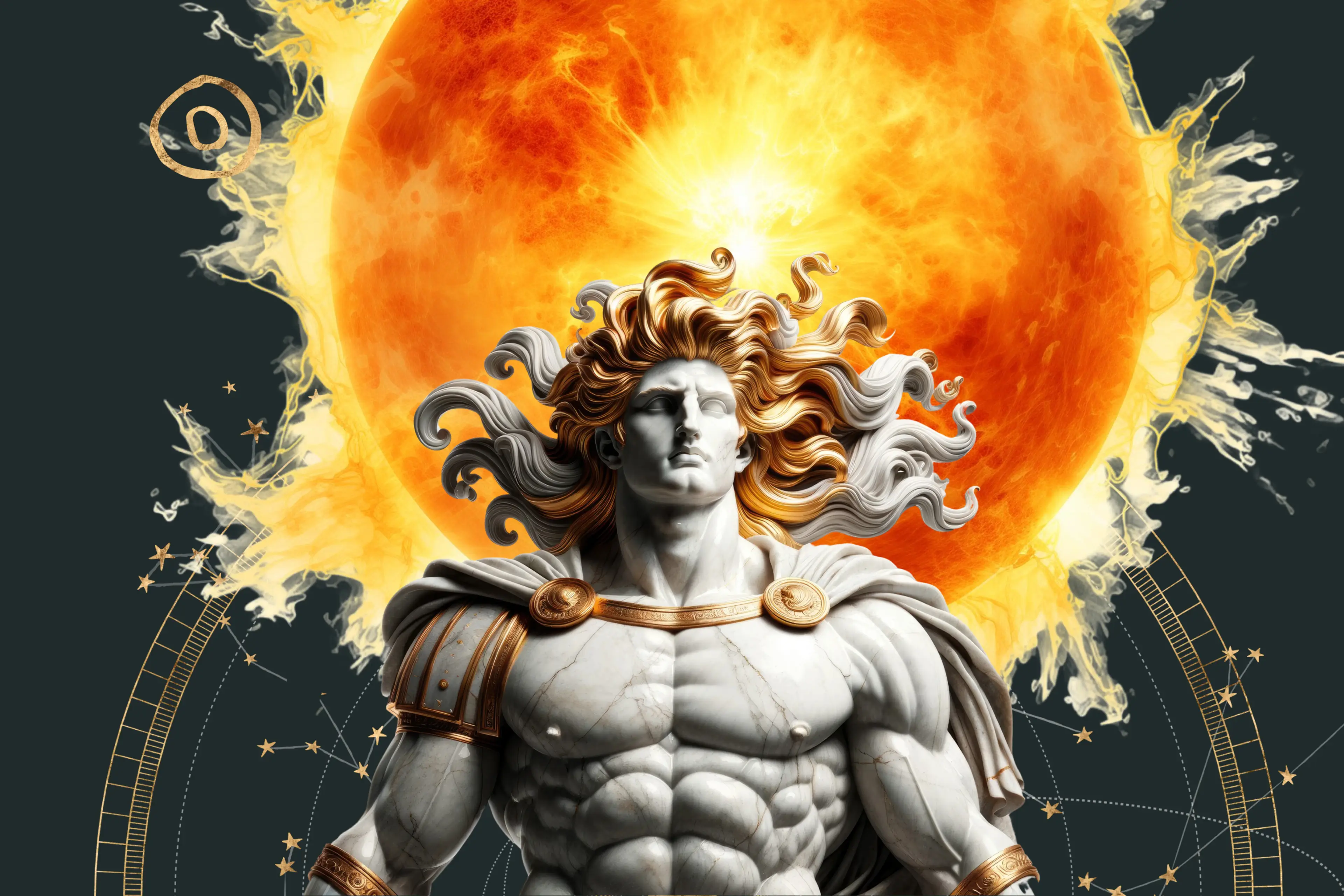The Sun represents the essential self, a central organizing principle around which other aspects of the self must relate to. It describes aspects of our purpose, vitality, and core needs that we seek to meet throughout our lives. In contrast to the Moon (the other luminary), which represents the subconscious mind, the Sun represents one’s conscious awareness, ego, and intellect.
In a birth chart horoscope, the position of the Sun represents the core aspects of self, and its astrological sign represents how we channel our life force outward, the wisdom we innately carry, and the style of growth that is most suitable for us. The Sun sign describes what we are motivated to make manifest in the world and reveals the guiding principles that can help us to stay connected to our purpose throughout life.
Key Concepts
The Sun rules the zodiac sign Leo, whose basic impulse—to revel in creative self-expression—is resonant with the Sun’s principle of expressing one’s individuality.
The Sun is exalted in Aries because the Solar desire to express one’s needs and desires can be achieved with confidence, enthusiasm, and vitality in Aries.
The Sun has its joy in the 9th House of Exploration, where the many paths of learning are well suited to the Sun’s need to cohere a sense of identity through discovery.
The Sun is related to the Major Arcana tarot card The Sun, as both are symbolic of the joy of authentic self-expression.
Astronomical Features
The Sun spends a month in each of the signs of the zodiac.
The Sun cycles through the entire zodiac once per year.
The Sun never retrogrades.
Sun Symbolism and Meaning
The Sun, being the center of our solar system on Earth, is symbolic of the essential self and the conscious identity. As the celestial body that produces the most light, it symbolizes the light of our conscious awareness and our vitality. As the only planet in our solar system that never appears to change shape (like the Moon) or go retrograde, it evokes archetypal concepts of that which is eternal, such as the Soul or the Divine.
The Sun and Moon are the two luminaries of the sky. The Sun represents the radiant core of our being and the light of our conscious awareness. In contrast to the Moon sign, which represents our nocturnal or subconscious awareness, the Sun sign represents what we intellectually know and are motivated by. We can embody the Sun’s radiance and capacity for illumination through our own creative self-expression.
The Sun in Balance
The Sun in balance can be seen as a healthy relationship to one’s ego and sense of identity: one that is strong enough to withstand failure, rejection, and challenges yet flexible enough to take constructive criticism, adapt to feedback from one’s environment, and remain open to change.
The Sun out of Balance
The Sun out of balance can manifest as selfishness or self-importance, hubris, a tendency to dominate or overpower others, or, conversely, as a fear of taking up space and a lack of self-confidence.
Psychological Aspects of the Sun
The Sun represents the psychological necessity of the ego and the protection offered by a strong sense of identity that allows one to move through the world with a coherent sense of self. The ability to identify one’s desires, needs, and ambitions is central to the function of the Sun.
Sun in Mythology
Many different ancient cultures, including the ancient Egyptians, Aztecs, and Native Americans, have worshiped the Sun as the supreme creator and symbol of the godhead. There is a natural resonance between the Sun and the Divine, as they are both synonymous with sustaining life on Earth.
We cannot perceive the Divine in the same way that we cannot look directly at the Sun, for the brilliance of its light can blind us. The Sun can be seen as representative of the animus or the masculine principle of conscious thought and action.

